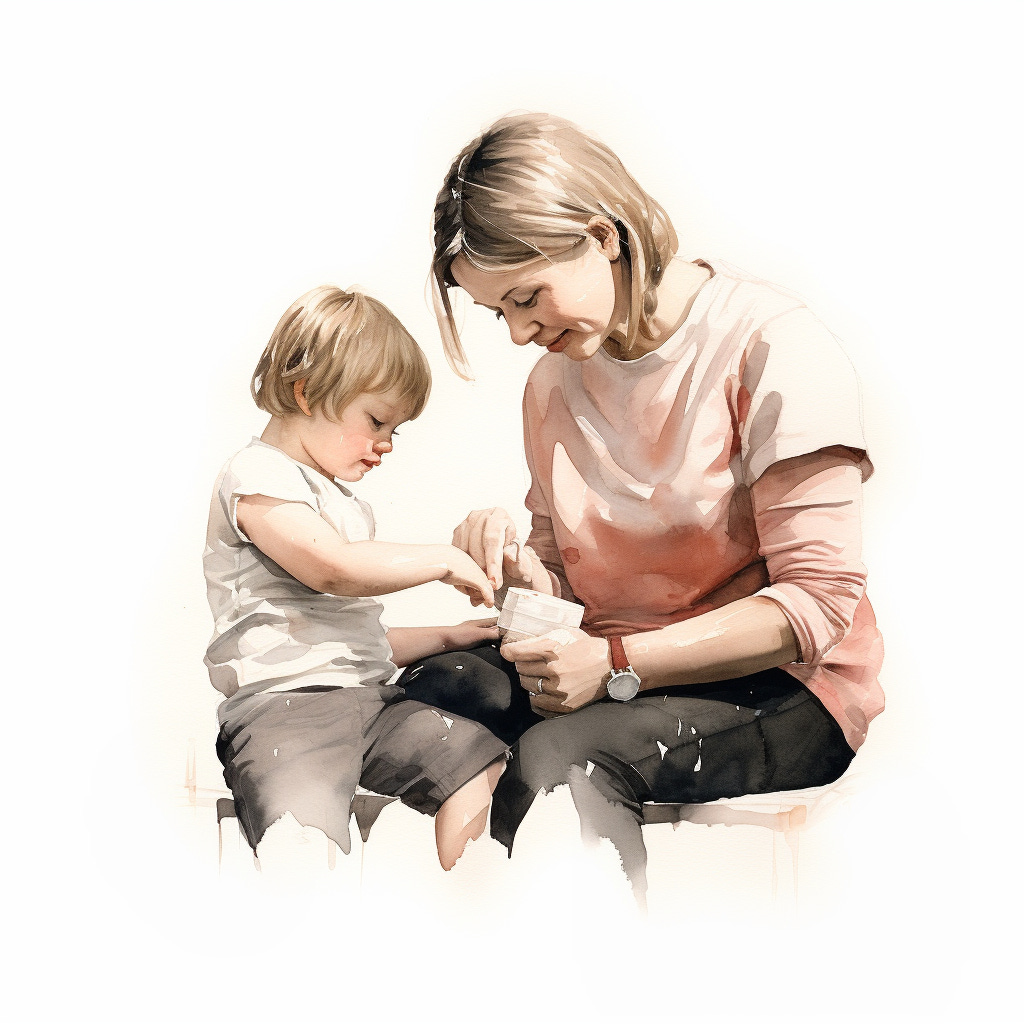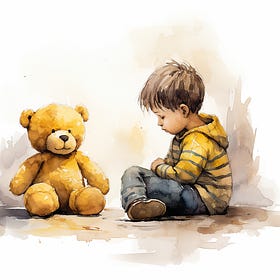When we cut ourselves with a sharp, dirty stone, it's best to bandage the wound without cleaning or disinfecting it first, right?
Everyone knows this is sheer folly because the wound will become infected. Then why do we still do the exact same thing with our emotional wounds?
It is basic first aid knowledge that when injured, it's vital to first clean the wound, then disinfect it and only after disinfecting can we bandage it. No one in their right mind would slap a bandage on a muddy, dirty wound and expect it to heal quickly. Especially when even a bruise can take days or, for some, one to two weeks to disappear. We certainly can't expect a deep, dirty cut to vanish overnight.
If we're so aware of this process when it comes to physical wounds, why can't we accept that healing works the same way for emotional ones?
When something hurts deeply, we often bury it within ourselves, close the door on it, and don't revisit it until life forces us to do so. We keep busy with work, children, chores, sports, or anything else to avoid feeling the pain. This is exactly like placing a bandage on a dirty wound without cleaning it, then expecting it to be healed the next day. It's no surprise that it won't, right?
Just as neglecting a physical wound can lead to it festering and becoming infected, neglecting an emotional wound can cause it to deepen and disrupt our lives even more.
Merely denying the existence of our emotional wounds, avoiding confronting their depth, and refusing to address them doesn't prevent them from affecting our emotional state. Some might become perpetually angry or irritable; others may grow bitter, fall into depression, or even develop an addiction. We express our anguish and the pain from these festering emotional wounds in countless ways, even if we believe they don't influence us.
Addressing emotional wounds, while not inherently complex, can be a prolonged and sometimes painful journey. Often, it's this anticipated pain that holds us back from beginning the healing process. Yet, recognizing that emotional wounds heal much like their physical counterparts makes it clear that we need to navigate this journey. Just as we wouldn't gamble with the dangers of septicemia or abscesses in physical injuries, why would we risk similar consequences with our emotional well-being?
Diving into the healing of emotional wounds begins by setting aside dedicated time for self-reflection. It's imperative to truly feel our authentic emotions regarding specific situations, relationships, or individuals, and to be brutally honest with ourselves. If we find that we no longer harbor love for our partner, if our child's behavior irritates us, if our job is insufferable, or if we've suffered deep wounds from a parent — and have been suppressing these feelings, then it's essential to acknowledge them, even if only privately.
After confronting these suppressed emotions, it's time to release the pent-up tension. This doesn't mean projecting onto others but rather finding a constructive outlet. This might mean pounding on a cushion, screaming into the vastness of an open field, or letting the tears flow when we're alone. This catharsis should continue until a sense of peace is restored and the anguish has diminished. It's not unusual for this to necessitate multiple sessions of release, and in the aftermath, a period of emotional numbness may ensue. Such reactions are entirely natural. Through it all, patience and self-compassion are paramount.
Acknowledging our pain isn't a sign of weakness or cowardice. On the contrary, confronting and navigating these turbulent emotions requires immense courage. Truly, this is the only logical path for those aspiring to lead happier, more relaxed, and successful lives. Similarly, with physical wounds, no one deems it weak or cowardly to treat and bandage an injury, or to seek professional assistance when the wound is profound.
Once we've felt our true emotions and cried, vented, or addressed what was trapped within us, it's worth reflecting on why we found ourselves in such a hurtful situation.
Asking questions like the followings can be helpful to get to know ourselves better and realize the patterns in our lives:
Has this happened before, or was it similar?
Is it a recurring scenario?
Do we always have problems with that person or others like them?
If so, the next step is to identify the reason for repeatedly putting ourselves in such situations. Often, as we clean the wound and allow it to start healing, valuable insights emerge. If we can't figure it out on our own, we should seek help. Many methods can help identify the root causes of these wounds and events, such as meditation, inner journeying, or family constellation.
While addressing these wounds might seem daunting at first, I can say from experience that it's not as difficult or long a process as it might seem at first glance. Moreover, in the long run, this is the only method that can lighten and balance our lives.
– Eszter
Related Articles
Why Do We Need Lard on Lines? – The Emotional Roots of Weight Gain
Can Childhood Trauma Lead to Serious Adult Illnesses?
Home | Notes | Articles | Eszter’s Magic | Literary Bonbons | Short Stories and Guides | Beyond the Book | EWE Issues | Archive | About






